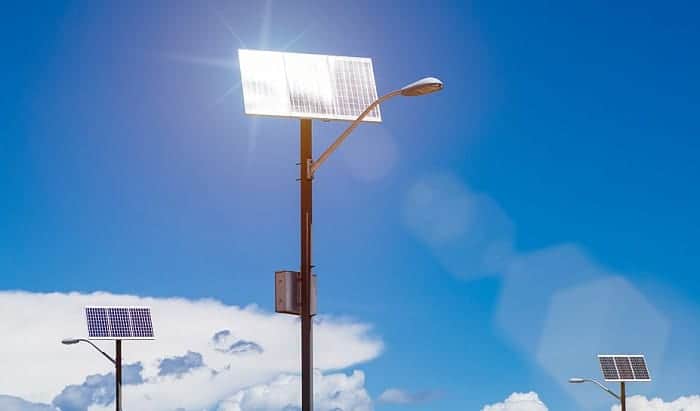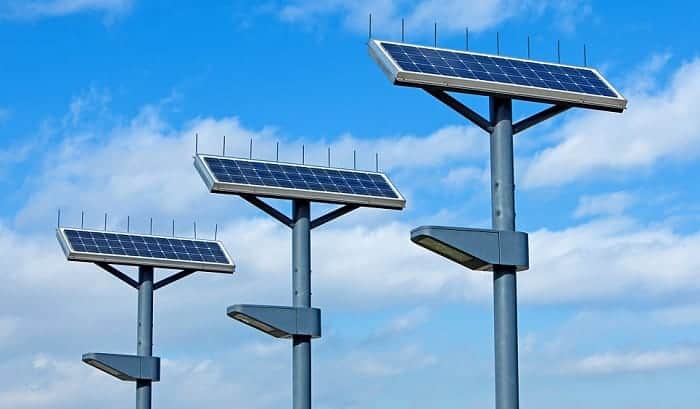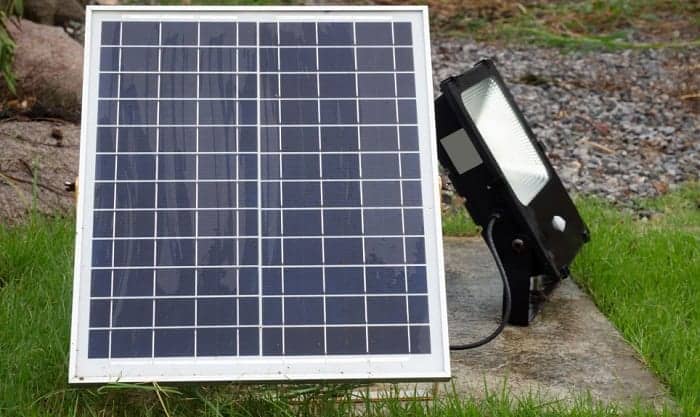There is no denying that the most excellent approach to charging solar-powered lights is in the presence of sunlight. Nonetheless, you can still charge these solar lighting devices even when there’s little of it.
You can be worry-free during the winter months because you can power your solar lighting systems with indirect sunlight.
That said, this only proves that solar lights can still obtain a charge even when sunlight is not at its peak. Do solar lights need direct sunlight? We’ll answer that question in the rest of this post!
Table of Contents
Do Solar-Powered Fixtures Need Direct Sunlight?
In general, outdoor solar-powered fixtures charge up by absorbing direct sunlight. This connotes that the sunlight obtained during daylight will directly affect the longevity of the solar light at dusk. Essentially, a solar-operated fixture charged for roughly 8 hours of sunlight will be able to operate for approximately 15 hours, on average.
Meanwhile, gloomy weather conditions can indeed affect the charging efficiency of solar-powered lights (Click here to learn more about how to charge solar lights without sun). This is because cloudy weather won’t allow as much light to pass through. Often, you are likely to notice a decrease in the duration of lighting at dusk when it is overcast.
Many consumers hesitate to invest in solar lighting systems because their primary source of energy is the sun. Many of us are worried that we might not be able to rely on them, mainly when the weather conditions are terrible, such as during winter.
Luckily, while it’s true that solar lights depend on sunlight to operate excellently, you can still charge them with indirect sunlight.
As a matter of fact, solar fixtures only require light in some form to make them work. Furthermore, this can be generated without the presence of sunlight. Thus, solar-powered lights can get charged with the aid of artificial light such as LED lamps, incandescent bulbs, and many more.
In addition, there is no question that direct sunlight is the most efficient means to generate power using solar panels. Nevertheless, this does not necessarily imply that the solar panels would not operate during other daytime conditions. The sole distinction is that solar lights will operate at a minimized capacity in these circumstances.
Did you know that solar panels are approximately 60% less effective on gloomy days compared to sunny days? But, keep in mind that this does not connote that your solar panel has become deficient. Fundamentally, solar panels can only produce power from the light they could obtain.
In other words, when there is less sunlight, for example, during winter and cloudy days, there is less to convert into electricity.
How Solar Energy Works?
Solar energy is generated by acquiring the heat energy from the sun and converting this heat energy into power. This power could then be employed to illuminate various indoor and outdoor places.
To be specific, solar energy utilizes black panels (photovoltaic cells) to acquire energy from the sun. This power is eventually transformed into a direct current that could either be utilized to run solar lights or be kept in batteries. This process demonstrates solar power in its basic form.
How Can You Charge Solar-Powered Fixtures without the Sun?
You can quickly charge your solar-powered fixtures without the presence of sunlight by positioning the solar panels directly beneath a house’s light. This approach is ideal for charging them quickly.
All you need to do is position the solar-powered fixtures near the incandescent bulb or artificial lighting to charge the solar lights without sunlight. It would take longer to charge the solar panel if the solar fixtures are away from the light bulbs.
Finding the Suitable Solar Light Option for any Weather Conditions
Without fail, solar-powered lights are lovely additions to any household or workplace. It is good to note that solar lights can have distinct effects concerning the manner in which they execute their functions during different seasons of the year.
Keep in mind that solar-operated lights operate best in direct sunlight.
Thus, you may decide to strategically position the solar lights to obtain as much sunlight as possible. Alternatively, you may decide to set aside the solar lights during winter or other inclement weather conditions.
Solar fixtures may work efficiently in frigid temperatures; however, you might not be able to rely on them in scorching heat entirely. This is because most solar-powered fixtures are manufactured to tolerate a specific range of temperatures.
So, depending on the temperature in your area and what your devices can handle, you may decide when to store them.
On the other hand, other terrible weather conditions like heavy downpours and severe snow may damage your solar lighting systems. Such conditions may diminish the solar light’s capability to obtain sunlight or break the glass. So, it’s better if you’d consult the seller regarding the capacity of the solar lighting unit you’re planning to buy.
Key Points
The question, “do solar lights need direct sunlight” was answered in this post. As you read, solar-powered fixtures can be charged without the presence of sunlight. Substantially, the most excellent means to charge solar lights is through direct sunlight; however, they can still obtain a charge by other means.

I am Kathleen Miller, staff writer and reviewer of the Avasolar team. Working with the team has been a pleasure for me so far, I hope to bring readers useful information by creating detailed and easy-to-follow contents.



